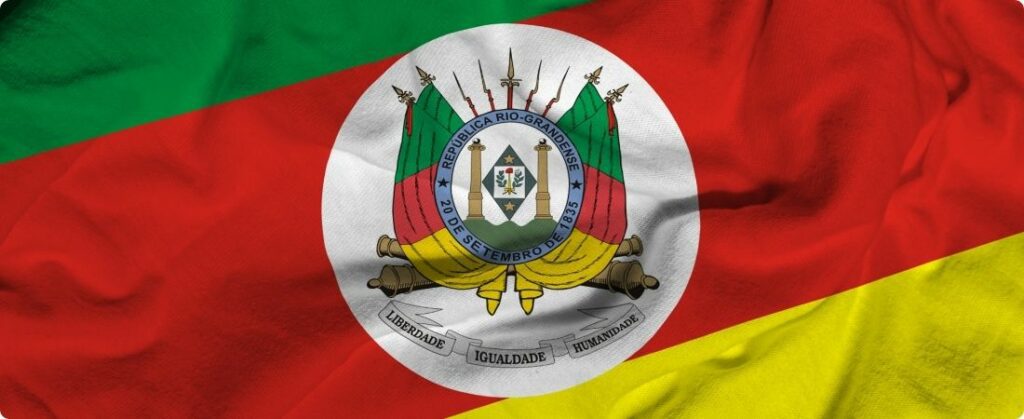
Rio Grande do Sul (RS) is the ninth largest state in territorial extension and fifth most important in the construction of Brazilian GDP, representing 6%. In 2023, the state generated R$ 643 billion for the Brazilian economy, with 40% of this value coming from agriculture and farming. As the main rice producer and second largest soybean producer, the recent floods in Rio Grande do Sul have had a significant impact, mainly on the agricultural sectors. Leandro Leão, specialist in soy oil, shares some data about the current state scenario and its future consequences.
Impact of floods on agriculture

The floods caused an estimated loss of R$ 68 million in rice production. As for soybeans, although losses are difficult to quantify concretely at this time, a reduction of approximately 2 to 3 million tons is estimated. Soybean production in RS in 2024 was predicted to be in the range of 22 to 23 million tons, but, due to the floods, this number is expected to drop to somewhere between 19 and 20 million. This represents an overall loss of 10% to 15% in this season's harvest. The situation could have been even more serious if the harvest in the fields had not been so advanced. Before the catastrophe, producers in Rio Grande do Sul had already harvested 70% of soybeans in the main regions, with the remaining 30% affected by the floods.
Total losses in the agricultural sector amount to R$ 435 million, while the livestock sector faces losses of R$ 135 million. Factors such as production, crushing and labor suffered severe impacts. An example of the magnitude of the impact is the Bianchini silo, which ruptured and led to the loss of 100 thousand tons of soybeans, resulting in approximately R$ 1 million in losses. The mud left by the floods calls into question the time needed to reestablish the resumption of industrial operations, with factories in different sectors, such as Braskem and Gerdau, having to halt their activities and grant employees time off and vacations due to the impact.
Climatic causes
Floods cause various types of damage to soils used to grow soybeans and rice. Moving water can wash away the topsoil, resulting in loss of fertility and lower productivity. Soil compaction may occur, making it difficult for roots to penetrate and infiltrate water and nutrients. Excess water can lead to anoxia, causing root death and reducing the plants' ability to absorb nutrients. Additionally, nutrient leaching and sediment displacement can bury seeds and introduce chemical pollutants into the soil.
The El Niño climate phenomenon was an essential factor in this catastrophe, causing concentrated rain in the southern region, especially in the areas of the Taquari River. The abnormal warming of the waters of the Equatorial Pacific Ocean interferes with wind and rain patterns, causing more precipitation and heat in southern Brazil. This climatic phenomenon exacerbated the flooding situation, leading to a disaster comparable to that which occurred in 1941.
Recovery and impacts in RS
It is expected that RS will take approximately 6 months to a year to fully recover and return to production, counting especially on fiscal aid, monetary incentives and support from the political sector so that they can restructure. The food chain was affected, impacting the production of by-products such as bran and flour. To give you an idea, the impact of the floods could trigger a cascade effect and indirectly change meat prices. The lower availability of soybeans in the state of RS will mean that there will be less soybean meal, used directly in the composition of beef feed. This would make production more expensive and cause the price of beef to rise.
The state represents half of the country's wheat production, which could lead to an increase in the price of bread due to reduced supply. The impact of the floods on agriculture in RS should be felt in the coming months. The state's farmers account for 70% of rice production, and other states will not compensate for the significant loss. The domestic market will likely suffer more impacts than exports of these products.
Furthermore, the floods highlight the need for effective environmental policies and adequate infrastructure to mitigate future extreme weather events, ensuring the resilience of the agricultural and livestock sector in Rio Grande do Sul.
In view of the severe floods that are plaguing several regions of the State of Rio Grande do Sul, resulting in countless submerged cities and thousands of displaced citizens, Aboissa Commodity Brokers expresses its deep solidarity with those affected by this natural catastrophe.
We invite the community and partners to contribute to victim assistance initiatives, through monetary donations or essential items. We detail in our instagram post some forms of collaboration.
Interview with Leandro Leão | Soybean oil specialist
By Vanessa Ferreira












